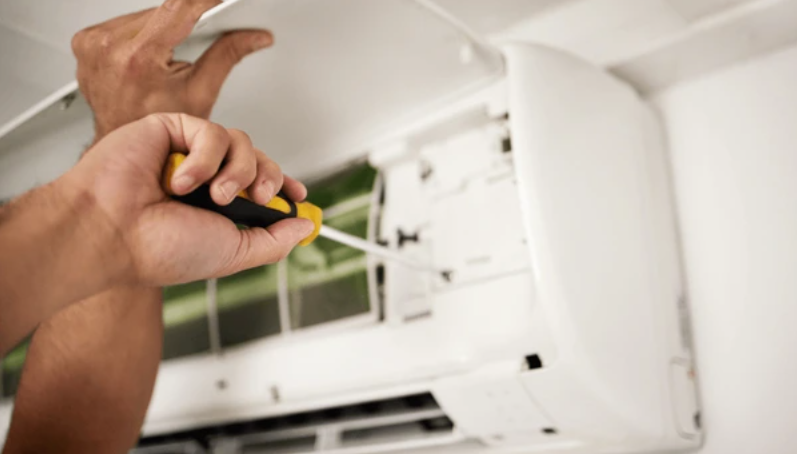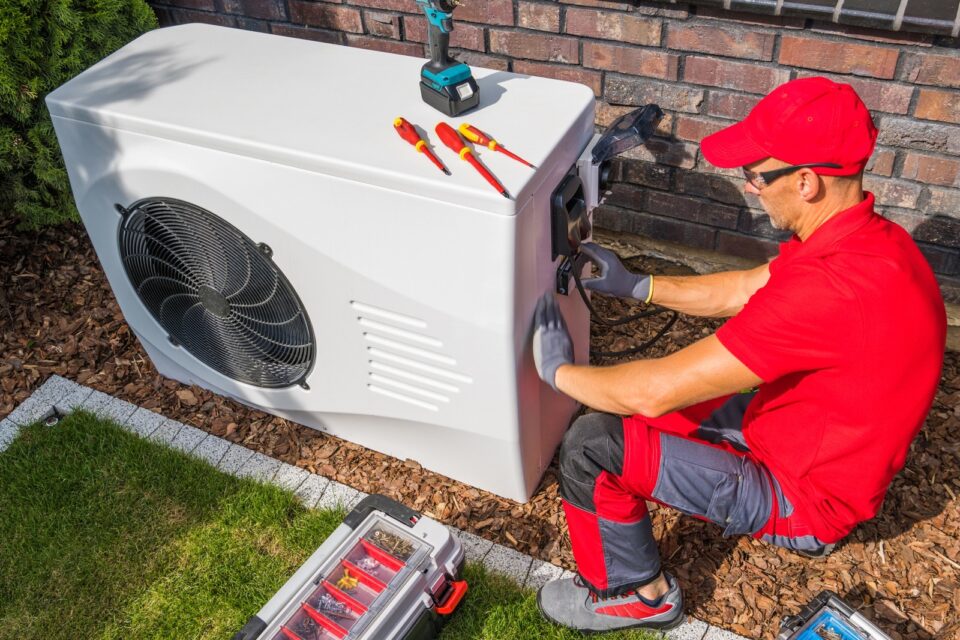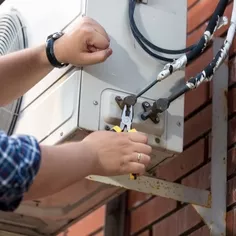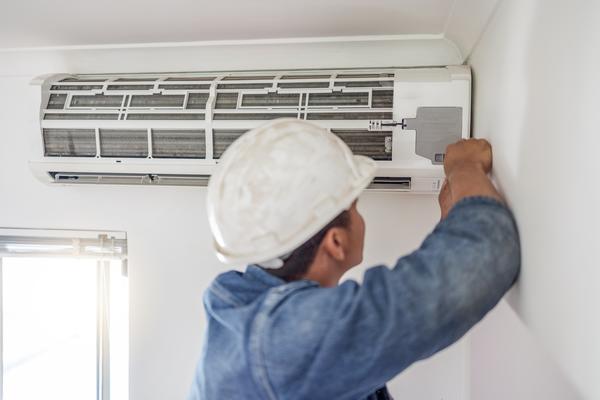When an HVAC system isn’t performing optimally, one of the most common issues homeowners and business owners encounter is poor airflow. This problem can be subtle at first but can lead to significant issues if not addressed. Understanding the causes, effects, and implications of poor airflow can help you maintain a comfortable and efficient environment.
What Are Common Causes of Poor Airflow in HVAC Systems?
Poor airflow in HVAC systems can arise from several issues, each affecting the system’s efficiency and performance. Understanding these causes can help you address and prevent them effectively.
- Dirty or Clogged Air Filters: One of the most common causes of poor airflow is a dirty or clogged air filter. Over time, air filters accumulate dust, dirt, and other particles, which restricts the flow of air through the system. This obstruction forces the HVAC system to work harder to push air through the filter, leading to reduced efficiency and increased energy consumption. To prevent this issue, it’s essential to check and replace air filters regularly, typically every 1-3 months, depending on usage and filter type.
- Issues with Ductwork: The condition and configuration of your ductwork play a significant role in airflow. Ducts that are too small for the HVAC system’s capacity can cause airflow bottlenecks, while improperly insulated or leaking ducts allow air to escape before reaching its intended destination. Leaky ducts reduce the overall efficiency of the system by wasting conditioned air and increasing energy costs. Properly sealing and insulating ductwork can enhance airflow and system performance.
- Blocked or Closed Vents: Sometimes, the simplest causes can be the most overlooked. Vents that are closed or obstructed by furniture, rugs, or other items can prevent air from circulating effectively throughout the space. This blockage can create uneven temperatures and reduce the overall efficiency of the HVAC system. Regularly check that all vents are open and free from obstructions to ensure balanced airflow and consistent comfort.
Addressing these common causes promptly can help maintain your HVAC system’s efficiency, improve comfort, and reduce energy costs.
How Does Poor Airflow Affect Energy Efficiency in HVAC Systems?
Poor airflow has a direct impact on the energy efficiency of HVAC systems. The system has to work harder to keep the temperature where it needs to be when movement is limited. Because of this extra work, more energy is being used, which means higher electricity bills. Over time, the extra stress on the system can also cause it to break down more often and need more expensive fixes.
Inadequate airflow forces the HVAC system to operate longer cycles to achieve the same level of comfort, leading to inefficiencies. For example, if an air filter is clogged, the system’s blower motor has to work harder to push air through the restricted filter, consuming more energy. Similarly, if the ductwork has leaks, the system wastes energy by heating or cooling areas that are not being effectively utilized.
What Components in an HVAC System Are Most Likely to Affect Airflow?
Several components within an HVAC system can influence airflow. The air filter is one of the most critical elements. A clogged or dirty filter can severely restrict airflow, making it difficult for the system to deliver the necessary amount of air to different parts of the building.
The blower motor is another vital component. It is responsible for moving air through the ductwork and into the living spaces. If the blower motor is malfunctioning or not operating at its full capacity, airflow can be compromised.
Ductwork is also crucial for proper airflow. As mentioned earlier, issues such as leaks, blockages, or improper sizing can all affect how air travels through the system. Insufficiently insulated or poorly installed ducts can lead to significant losses in airflow efficiency.
Additionally, the HVAC system’s dampers can affect airflow. Dampers are used to control the flow of air through different ducts and zones. If these dampers are not functioning correctly or are set incorrectly, it can result in uneven airflow and affect overall system performance.
How Can Poor Airflow Impact Indoor Air Quality in a Home or Office?
The quality of indoor air is closely linked to the efficiency of the HVAC system. Poor airflow can lead to several issues that impact indoor air quality. When airflow is restricted, air is not circulated effectively throughout the space. This stagnation can cause the buildup of pollutants, allergens, and other contaminants, leading to a decrease in indoor air quality.
For instance, if air filters are clogged and not replaced regularly, they become less effective at trapping dust, pollen, and other airborne particles. As a result, these contaminants can accumulate in the air, exacerbating allergies and respiratory issues for occupants.
Additionally, poor airflow can contribute to uneven heating and cooling within the space. Some areas may become too hot or too cold, leading to discomfort and potential health issues. Inconsistent temperatures can also affect humidity levels, which can further impact indoor air quality by promoting mold growth and contributing to a stuffy environment.
Addressing poor airflow in HVAC systems is crucial for maintaining both comfort and efficiency. Airflow problems can be avoided by doing regular maintenance like changing or cleaning the air filters, checking the ductwork, and making sure that all the parts are working properly. You can take steps to make sure that your HVAC system works well and keeps your home healthy by learning about the reasons and effects of poor airflow.
Why Choose Elite Air & Heat LLC for Your HVAC Needs
At Elite Air & Heat LLC, we understand that maintaining optimal airflow is essential for the efficiency and comfort of your HVAC system. Our team of skilled experts is committed to carefully identifying and fixing problems that are caused by poor airflow. We’re proud to offer a full range of services, such as thorough inspections, skilled repairs, and system upgrades, to make sure your HVAC system works at its best.
We use advanced diagnostic tools and techniques to identify airflow problems, whether they stem from dirty filters, ductwork issues, or malfunctioning components. Our commitment to quality and customer satisfaction means that we not only fix the immediate issue but also provide solutions that enhance the long-term efficiency of your system.
By choosing Elite Air & Heat LLC, you’re partnering with a company that values transparency, reliability, and excellence. We work closely with you to understand your needs and deliver tailored solutions that improve airflow, boost energy efficiency, and ensure a comfortable environment in your home or office. Let us help you maintain the optimal performance of your HVAC system and enjoy peace of mind with our expert services.
Frequently Asked Questions About Poor Airflow in HVAC Systems
What is the typical cost to address poor airflow issues in an HVAC system?
The cost to address poor airflow issues can vary depending on the complexity of the problem and the extent of the repairs needed. On average, you might expect to pay between $150 and $500 for services related to cleaning or replacing air filters, fixing ductwork leaks, or adjusting system components.
More extensive repairs or system upgrades could cost more. At Elite Air & Heat LLC, we offer transparent pricing and work with you to provide cost-effective solutions that fit your budget.
How often should I have my HVAC system inspected for airflow issues?
Regular inspections are key to preventing airflow problems and maintaining system efficiency. It’s recommended to have your HVAC system inspected at least once a year. This helps identify and address potential issues before they become major problems, ensuring your system runs smoothly and efficiently year-round.
Can I fix poor airflow problems myself, or should I call a professional?
While there are some DIY tasks you can perform, such as replacing air filters or checking for blocked vents, many airflow issues require professional expertise. Complex problems, such as ductwork leaks or malfunctioning components, should be addressed by a trained technician to ensure proper diagnosis and repair. Calling a professional ensures that the problem is correctly identified and resolved, preventing further complications and maintaining system efficiency.
How can I prevent poor airflow issues in the future?
Preventive measures include regularly replacing air filters, scheduling annual HVAC inspections, and ensuring that vents and ducts are clean and unobstructed. Additionally, investing in high-quality filters and proper insulation for your ductwork can help maintain optimal airflow and system performance.
Don’t Let Poor Airflow Affect Your Comfort and Energy Efficiency
Contact Elite Air & Heat LLC today to schedule a thorough inspection and expert service. Our friendly team is here to help you achieve optimal HVAC performance and ensure a comfortable environment in your home or office. Call us now or visit our website to learn more about our services and get started on improving your airflow.




